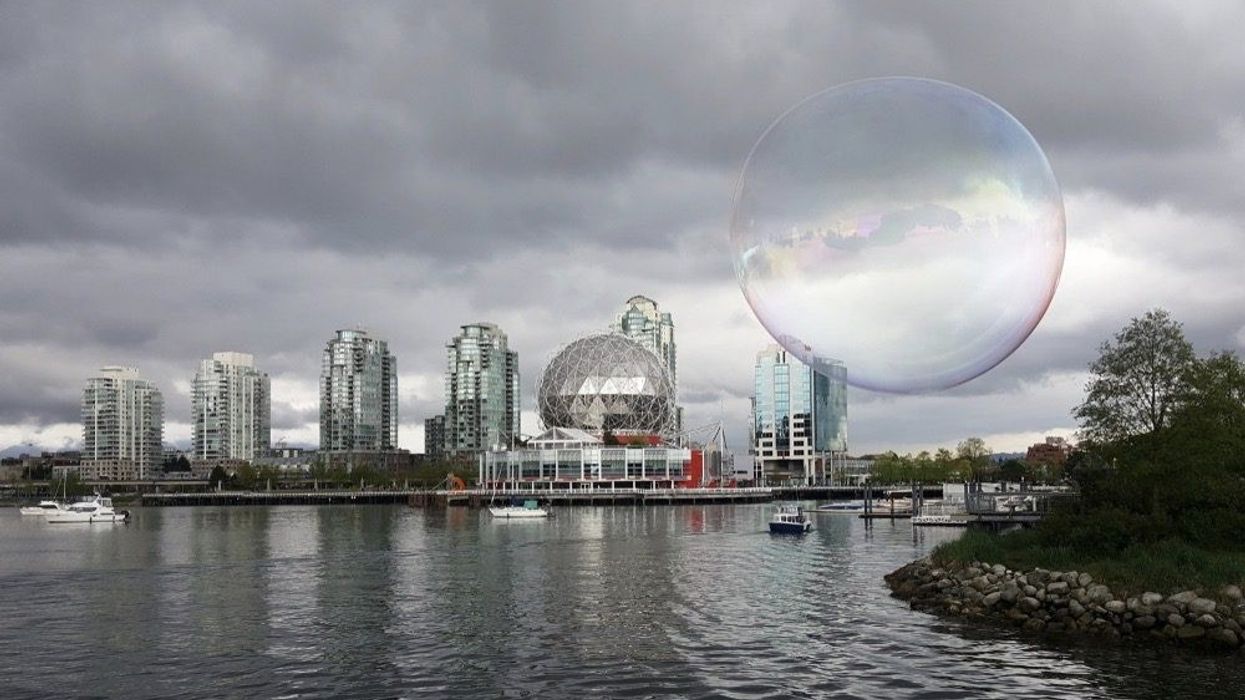After the housing market in Metro Vancouver showed signs of cooling in July, perhaps bringing the region's real estate market into a new phase, that trend continued in August, according to the Real Estate Board of Greater Vancouver (REBGV).
The REBGV's latest report showed that residential sales in Metro Vancouver totalled 1,870 in the month of August, a minor 0.9% decrease from the 1,887 in July, but a 40.7% decline from the 3,152 in August of 2021.
The drop-off from last year, and even earlier this year, was attributed to inflation and interest rate pressures.
“With inflationary pressure and interest rates on the rise, home buyer and seller activity shifted below our long-term seasonal averages this summer", REBGV's Director of Economics and Data Analytics, Andrew Lis, said.
The benchmark home price for all residential properties also dipped in the short term, coming in at $1,180,500. That marks a 2.2% decline from July, though still up from last year's price by 7.4%.
Regional Market Trends
From July to August, the area of Metro Vancouver that saw the biggest decrease in sales was Pitt Meadows and Maple Ridge, which both saw a 4.6% decrease. Both decreases were a continuation of a trend, with those areas seeing an overall decrease of 11.3% and 10.9% respectively over the past three months, the two largest decreases in Metro Vancouver in that time.
And after Tsawwassen and Burnaby South saw the largest drops in July, those two areas saw the smallest declines in August, at 0.5% and 0.7%, the only two areas that saw a decrease of less than 1%, a sign that possibly indicates that those dips have hit their floors.
In terms of prices, defined by the MLS benchmark price, the four areas that had the lowest benchmark price in July remained the same in August. New Westminster still had the lowest benchmark price, at $816,700. New West was followed by the Sunshine Coast ($880,700), Pitt Meadows ($911,200), and Port Coquitlam ($917,900).
The opposite end also stayed the same, with West Vancouver still at an astronomical $2,774,100, significantly higher than the next-highest area, which was Bowen Island at $1,546,600, and over double that of Metro Vancouver as a whole ($1,180,500).
Property Type Trends
The region-wide dip in the housing market of Metro Vancouver in August held regardless of property types, too. Single-family detached homes saw a decrease in sales of 2.3%, townhouses saw a decrease of 2.5%, and apartments saw a decrease of 2.0%. The average amount of days each of those property type listings stayed on the market, however, according to REBGV, were all about a month.
Single-family detached homes saw the smallest decreases in Tsawwassen (0%), Burnaby South (0.2%) and Richmond (0.9%), while Pitt Meadows saw the highest drop, at 6.1%. West Vancouver and Vancouver West still had the two highest benchmark prices, at $3,340,400 and $3,335,000, while the Sunshine Coast had the lowest at $957,200. Those trends were a continuation from July.
For townhouses, Vancouver West saw the smallest dip, at 0.3%, followed by Port Coquitlam at 1.1%, and Burnaby North at 1.3%. The biggest decrease occurred in Maple Ridge, which saw a 5.3% decrease. Whistler -- a resort town -- still had the highest benchmark price for townhouses, at $1,487,800, followed by Vancouver West's $1,459,300, with the Sunshine Coast again having the lowest benchmark, at $749,400.
In terms of apartments, Burnaby South saw the smallest decrease (0.3%), followed by West Vancouver (0.7%) and Port Moody (0.9%), while the Sunshine Coast and Squamish saw the steepest declines, at 7.7% and 7.6% respectively. This time, however, the Sunshine Coast did not have the lowest benchmark price. That distinction belonged to Maple Ridge, which had a benchmark of $546,400. Perhaps less surprising is that West Vancouver had the highest benchmark price for apartments, at $1,234,700, remaining the only area of Metro Vancouver with an apartment benchmark price over $1 million, which was also true in July, and likely will not change for the foreseeable future.
After years and years of steady increases, the housing market in Metro Vancouver is now turning in the other direction, with decreases across all regions and property types. The Bank of Canada is expected to hike interest rates further very soon, which likely means these decreases may, unfortunately, start becoming the new normal.




















